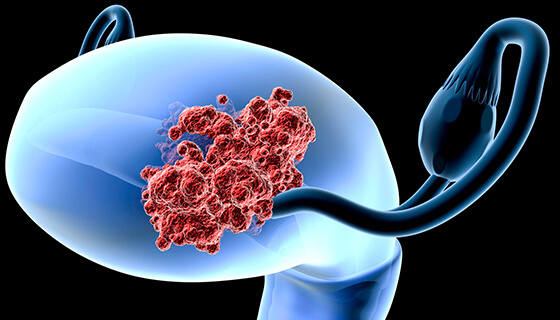Endometrial cancer, also known as uterine cancer, occurs in the lining of the uterus (the endometrial). This type of cancer typically affects postmenopausal women, though it can occur at any age.
Endometrial cancer, also known as uterine cancer, arises from the lining of the uterus. Early symptoms include abnormal bleeding and pelvic pain. For effective diagnosis and treatment, consult Dr. Arvind Kumar, one of the best endometrial cancer doctors in Delhi, known for his expertise and compassionate care.

There are two primary types of endometrial cancer:
If you experience any abnormal bleeding, especially after menopause, or persistent pelvic pain, it is important to consult a doctor to rule out endometrial cancer.
Endometrial cancer can be linked to hormonal imbalances, particularly increased levels of estrogen, as well as obesity, and a family history of the disease.
Diagnosis may involve:
Endometrial cancer stages range from 0 to 4:
Stage 0: Cancer cells are confined to the inner layer of the endometrial.
Stage 1: Cancer is present only in the uterus.
Stage 2: Cancer has spread to the cervix.
Stage 3: Cancer has spread beyond the uterus, but not to distant organs.
Stage 4: Cancer has spread to other parts of the body, such as the bladder or rectum.
Treatment often involves surgery, including:
Hormone therapy may be used to lower estrogen levels or block its effects on endometrial cancer cells, particularly in cases of advanced cancer.
After treatment, regular follow-ups are essential to monitor recovery and detect any recurrence. Emotional support and physical rehabilitation can aid in improving quality of life following treatment.